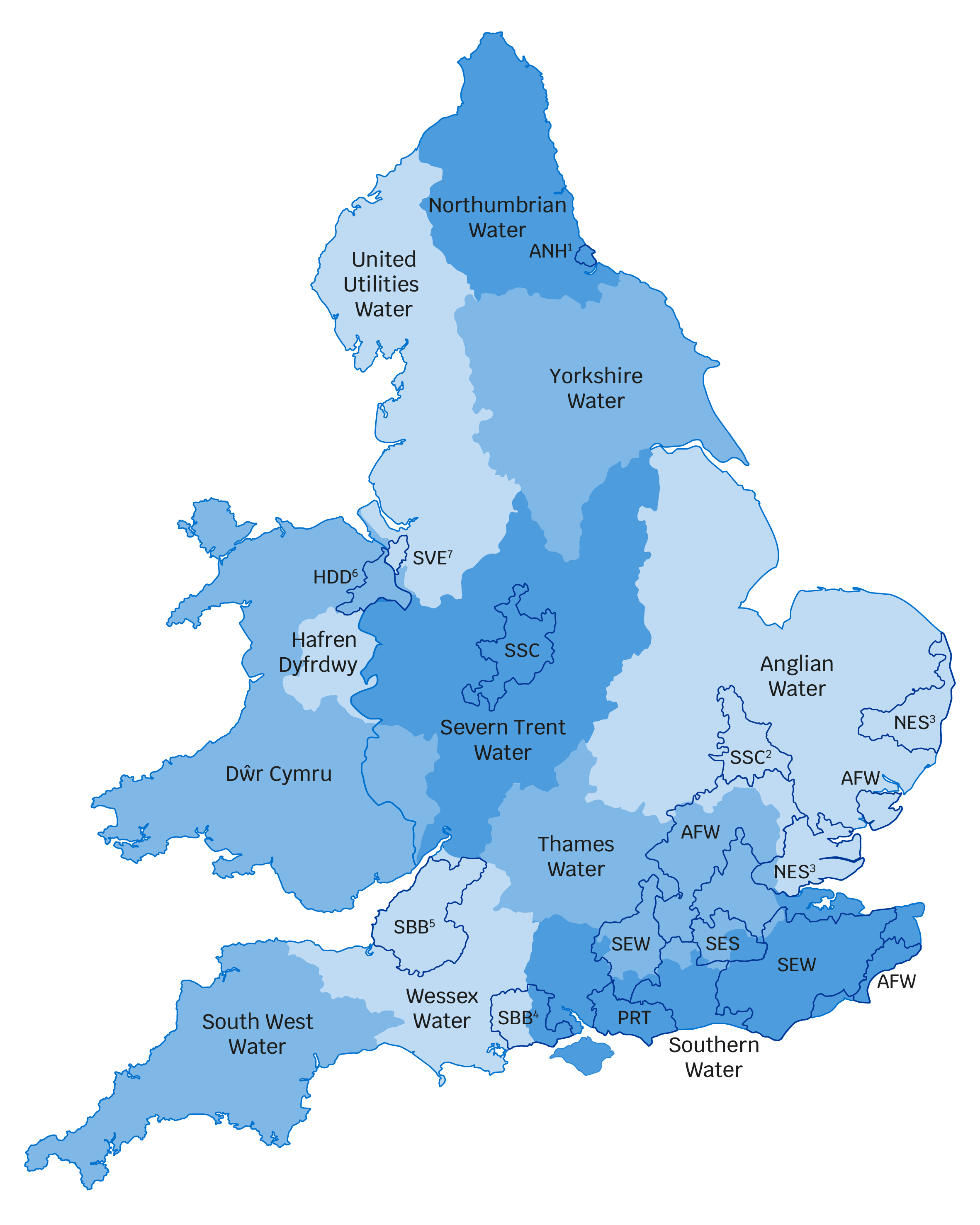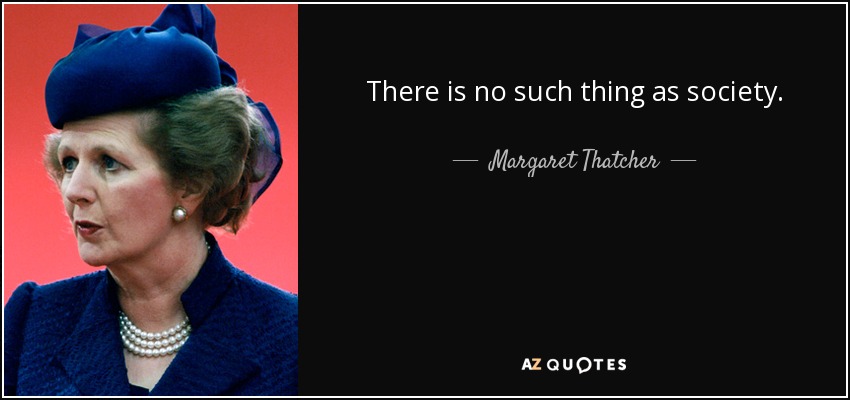- Joined
- Aug 25, 2021
- Messages
- 7,153
- Reaction score
- 16,695
Water in the UK was nationalised until Margaret Thatcher's

Conservative government privatised it in England and Wales in 1989. Water was not privatised in Scotland or Northern Ireland and was renationalised in most of Wales and some of England in 2001 (Dwr Cymru is government-owned).

The UK used to have many nationalised utilities and industries, such as British Airways, British Rail, Royal Mail, British Leyland etc. and almost all of them have been privatised and are now mostly owned by foreigners. Let's concentrate on water ITT though. As far as I can tell England and Chile are the only countries in the world with fully private water (more or less - as mentioned above small parts of England are served by the nationalised Welsh water company, and Chile has one government-owned waterworks).

Privatisation of water in England has led to:
https://weownit.org.uk/public-ownership/water
(1) Foreign Ownership
The English water companies are more than 90% owned by shareholders abroad, for example:
• Wessex Water is 100% owned by a Malaysian company, YTL.
• Northumbrian Water is owned by Hong Kong businessman Li Ka Shing.
• Thames Water is partly owned by investors from the United Arab Emirates, Kuwait, China and Australia.
(2) Huge profits sucked out of the public for the privilege of drinking, washing and using the toilet
Since privatisation £72 billion has gone to shareholders - around £2 billion a year on average.
(3) Simultaneously Huge Debt
The water companies have built up a debt mountain of £54 billion [starting from 0] and [have] used this to finance dividends for shareholders.
(4) Fat Cat Salaries
The average pay for a water company CEO is £1.7 million a year. The biggest earner is Steve Mogford, CEO of United Utilities, on £2.9 million.
(5) Large Bill Increases
Our bills have gone up by 40% in real terms since privatisation.
(6) Neglect of Infrastructure Causing Huge Waste
Water companies are leaking away 2.4 billion litres / 528 million imperial gallons of water a day (up to a quarter of their supply). [This is almost 1000 Olympic sized swimming pools.]
Publicly owned Scottish Water has spent £72 more per household per year (35% more) than the English water companies. If England had invested at this rate an extra £28 billion would have gone into the infrastructure to tackle problems like leaks and sewage.
(7) Intense Pollution
Every day the water companies discharge raw sewage into our rivers and seas more than 1000 times on average - over 9 million hours since 2016.
/
Ofwat and the Environment Agency are supposed to prevent all this happening but they have been defunded, blocked and captured by Big Capital.
https://www.theguardian.com/environment/2022/jan/20/environment-agency-cuts-staff-blow-whistle
...government funding for the agency’s environmental protection work has slumped from about £170m in 2009-10 to a low of £76m in 2019-20, and £94m last year.
The upshot is that the agency’s funding and operational decisions have “resulted in a regulator that is toothless,” said one officer. “Should a polluter be caught, any tools that were at [its] disposal to take action have been systematically removed … Officers are actively encouraged not to take enforcement action, and asked to find another solution. We are no longer a deterrent to polluters.”
“The Environment Agency is as far removed from the ‘polluter pays’ principle as it has ever been, and what is most concerning is that this appears to be by design,” said one.
/
69% of the British public want water [fully] back in public hands.


/
Further reading available here and here.
(Temporary) Renationalisation of the UK's biggest Water Company On The Table
Thames Water is on the brink of collapse, with emergency plans being drawn up to take the company into temporary public ownership. It’s an extraordinary state of affairs: how could a business with a regional monopoly over an essential service not manage to maintain a financially sustainable footing? The answer: an extractive ownership model has seen the company loaded with debt, and returns for its investors prioritised over the needs of both people and the environment.
Update

Conservative government privatised it in England and Wales in 1989. Water was not privatised in Scotland or Northern Ireland and was renationalised in most of Wales and some of England in 2001 (Dwr Cymru is government-owned).

https://www.ofwat.gov.uk/wp-content/uploads/2022/12/WCPR_2021-22.pdf
1 Water services provided under the Hartlepool Water name.
2 Water services provided under the Cambridge Water name.
3 Water services provided under the Essex & Suffolk Water name.
4 Water services provided under the Bournemouth Water name.
5 Hafren Dyfrdwy provides water services only in this area.
6 Severn Trent Water provides water services only in the area.
1 Water services provided under the Hartlepool Water name.
2 Water services provided under the Cambridge Water name.
3 Water services provided under the Essex & Suffolk Water name.
4 Water services provided under the Bournemouth Water name.
5 Hafren Dyfrdwy provides water services only in this area.
6 Severn Trent Water provides water services only in the area.
The UK used to have many nationalised utilities and industries, such as British Airways, British Rail, Royal Mail, British Leyland etc. and almost all of them have been privatised and are now mostly owned by foreigners. Let's concentrate on water ITT though. As far as I can tell England and Chile are the only countries in the world with fully private water (more or less - as mentioned above small parts of England are served by the nationalised Welsh water company, and Chile has one government-owned waterworks).

Privatisation of water in England has led to:
https://weownit.org.uk/public-ownership/water
(1) Foreign Ownership
The English water companies are more than 90% owned by shareholders abroad, for example:
• Wessex Water is 100% owned by a Malaysian company, YTL.
• Northumbrian Water is owned by Hong Kong businessman Li Ka Shing.
• Thames Water is partly owned by investors from the United Arab Emirates, Kuwait, China and Australia.
(2) Huge profits sucked out of the public for the privilege of drinking, washing and using the toilet
Since privatisation £72 billion has gone to shareholders - around £2 billion a year on average.
(3) Simultaneously Huge Debt
The water companies have built up a debt mountain of £54 billion [starting from 0] and [have] used this to finance dividends for shareholders.
(4) Fat Cat Salaries
The average pay for a water company CEO is £1.7 million a year. The biggest earner is Steve Mogford, CEO of United Utilities, on £2.9 million.
(5) Large Bill Increases
Our bills have gone up by 40% in real terms since privatisation.
(6) Neglect of Infrastructure Causing Huge Waste
Water companies are leaking away 2.4 billion litres / 528 million imperial gallons of water a day (up to a quarter of their supply). [This is almost 1000 Olympic sized swimming pools.]
Publicly owned Scottish Water has spent £72 more per household per year (35% more) than the English water companies. If England had invested at this rate an extra £28 billion would have gone into the infrastructure to tackle problems like leaks and sewage.
(7) Intense Pollution
Every day the water companies discharge raw sewage into our rivers and seas more than 1000 times on average - over 9 million hours since 2016.
/
Ofwat and the Environment Agency are supposed to prevent all this happening but they have been defunded, blocked and captured by Big Capital.
https://www.theguardian.com/environment/2022/jan/20/environment-agency-cuts-staff-blow-whistle
...government funding for the agency’s environmental protection work has slumped from about £170m in 2009-10 to a low of £76m in 2019-20, and £94m last year.
The upshot is that the agency’s funding and operational decisions have “resulted in a regulator that is toothless,” said one officer. “Should a polluter be caught, any tools that were at [its] disposal to take action have been systematically removed … Officers are actively encouraged not to take enforcement action, and asked to find another solution. We are no longer a deterrent to polluters.”
“The Environment Agency is as far removed from the ‘polluter pays’ principle as it has ever been, and what is most concerning is that this appears to be by design,” said one.
/
69% of the British public want water [fully] back in public hands.


/
Further reading available here and here.
(Temporary) Renationalisation of the UK's biggest Water Company On The Table
Thames Water is on the brink of collapse, with emergency plans being drawn up to take the company into temporary public ownership. It’s an extraordinary state of affairs: how could a business with a regional monopoly over an essential service not manage to maintain a financially sustainable footing? The answer: an extractive ownership model has seen the company loaded with debt, and returns for its investors prioritised over the needs of both people and the environment.
Update
Last edited:



